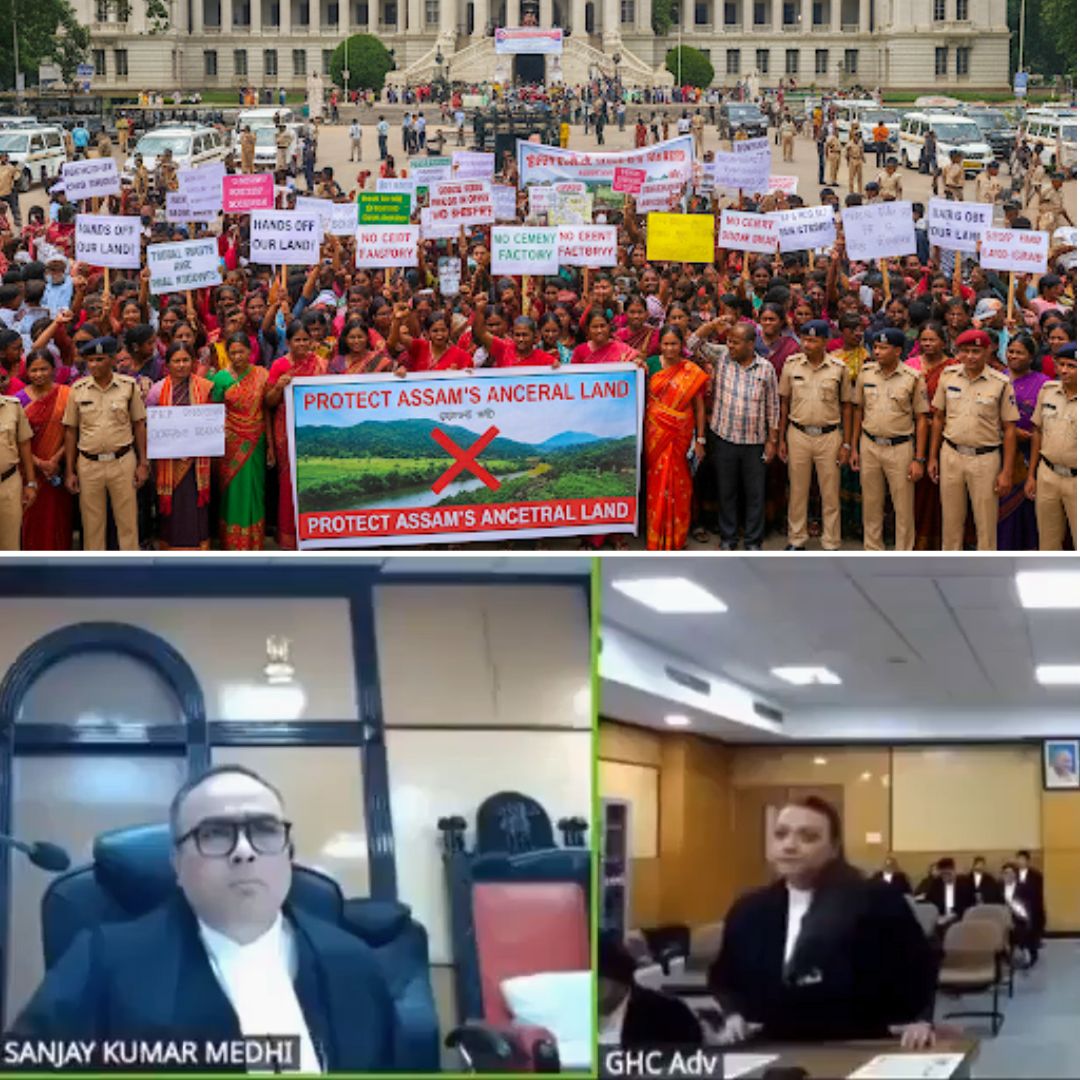On September 1, Justice Sanjay Kumar Medhi of the Gauhati High Court sharply questioned the allotment of 3,000 bighas of tribal Sixth Schedule land in Assam’s Umrongso area to a private cement company, Mahabal Cement. The court demanded detailed records and policy documents from the Assam government and the North Cachar Hills Autonomous Council (NCHAC) to justify the decision.
Tribal residents and activists have contested the transfer, alleging coercion and illegal practices, while the government defends the move as vital for industrial growth. The case highlights a critical clash between constitutional tribal safeguards, ecological preservation, and economic development imperatives.
Ancestral Land and Livelihoods Under Siege
The disputed land in Dima Hasao’s Umrongso is an ecologically rich zone, home to hot springs, migratory birds, dense forests, and diverse wildlife, valued deeply by indigenous communities. Over 400 families from Dimasa and Karbi tribes have lawfully inhabited and cultivated this region since the 1970s. Petitioners allege that their land was quietly allotted to Mahabal Cement in March and April 2024 without proper consultation or consent.
Many residents claim coercion, including pressure to sign No Objection Certificates and accept insufficient compensation, fearing displacement and loss of cultural heritage. Justice Medhi called the vast land transfer “extraordinary” and challenged the claim that the land is “barren,” emphasising the need to protect tribal rights and ecological balance.
Legal Battle and Government’s Stance
The dispute surfaced publicly through multiple petitions and legal challenges from affected residents beginning in late 2024. On one side, villagers and activists have filed a Public Interest Litigation (PIL) against the council’s decision, listing concerns over procedural lapses and violations of the Sixth Schedule, which constitutionally protects tribal land rights.
The BJP-led Dima Hasao Autonomous Council allotted 2,000 bighas in March and another 1,000 bighas in April 2024 under periodic lease agreements, with renewal options. Meanwhile, the Assam government’s inquiry committee has defended the allotment as necessary for cement production but has deferred environmental clearances to later stages. The Gauhati High Court has conducted multiple hearings, pressed for transparency, and underscored that industrial development should not overshadow tribal welfare or legal safeguards.
Political Repercussions and Suppression Allegations
Tensions have escalated outside the courtroom, with villagers alleging intimidation and arrests by authorities. On September 2, six villagers reportedly linked to the protests were detained ahead of a crucial court hearing, prompting accusations of political vendetta and suppression of dissent by opposition leaders. Congress spokesperson Bapujit Langthasa condemned the moves, calling it an “attack on justice” aimed at silencing tribal voices protecting their ancestral land.
The villagers accuse local officials of leveraging state machinery to weaken opposition to the cement company. Simultaneously, the company claims to face harassment and disruptions from protesters. This atmosphere of conflict highlights deeper structural tensions in tribal areas where land rights, governance autonomy, and development agendas frequently collide.
The Logical Indian’s Perspective
The Umrongso case is a powerful reminder of the need to harmonise economic progress with the preservation of tribal identity, ecological integrity, and constitutional protections. The Logical Indian believes development must be sustainable and inclusive, ensuring that growth does not trample on the rights of indigenous people or the environment.
Ancestral lands carry immense cultural, social, and ecological significance that cannot be reduced to mere commodities for corporate profit. Engaged dialogue, lawful processes, and community-centric solutions should replace coercion and marginalisation.












